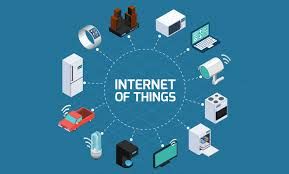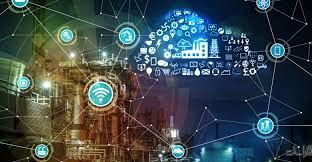The Wonderful Iot
Jan 31, 2019 • 1 view
The Internet of Things or the IoT is a system of intelligently connected devices and systems. These are provided with unique identifiers (UIDs) and the ability to transfer data over a network without requiring human-to-human or human-to-computer interaction. In simpler words, it can be considered as the technology in which every day physical objects are connected to the internet and these materials are able to recognize other objects and interact with them for various requirements and tasks. So basically, there is no need of human interaction in this network. This is the significance of IoT. But apart from that, talking of an object which can represent itself in a digital environment, this whole sense of its own identity makes it something greater than the object itself.

When we use the term ‘connected’, the mental image we get s that of smartphones and computers. But in the world of IoT, anything can be connected and all of them communicate intelligently making life a cakewalk even if you are the laziest person out there. It depends on a whole host of technologies starting from APIs (application programming interface) to RFID (radio-frequency identification) for connecting the devices and for communication to happen between them.
The IoT has a quite impressive amount of benefits. It helps companies in creating new services based on real-time sensor data and information. It can be used to automate business and manufacturing processes as it has the ability to remotely monitor and control operations, optimize supply chains, and conserve resources, thus increasing the operational efficiency of organizations and companies. Routine tasks can be automated by the workforce of various platforms. This might help in boosting the workforce efficiency and productivity. The IoT can also enhance the customer experience by integrating customer care with actual product performance. It can also be used to create highly personalized products.

With some basic understanding of IoT all cities can become ‘smarter’ and ‘smart cities’ are supposedly the future of our world. A ‘smart city’ is apparently defined as an urban area where the Internet of Things is used to collect and provide information and effectively manage the assets and resources all around the city. Though we are not much aware of the IoT, we are actually part of a generation which makes use of the IoT in their everyday life. From smart speakers, smart toys, smart TVs, wearables and commercial security systems, the IoT surrounds us and not so subtly, but its everyday use and easy accessibility has made us unaware of the whole system running around us and yes, even when we are using it. It is also used for tracking delivery vans, collecting flight data, waste management, claiming insurance, etc. Therefore, it can be concluded that the whole large system called the IoT has been working in accomplishing the everyday activities of our life and we will be becoming much more dependent on the IoT than we already are.
Topic source : http://nuttkracker.com/
